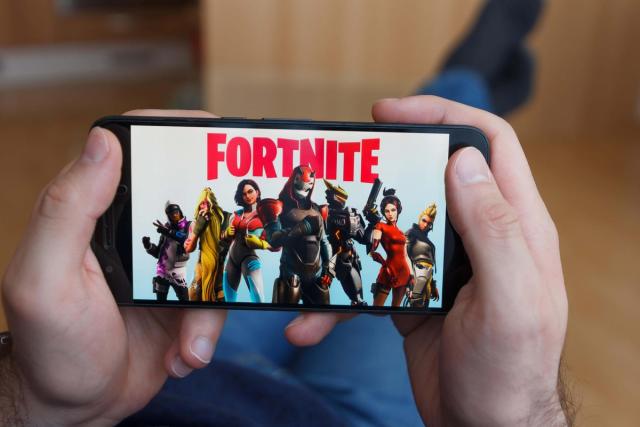Fortnite Returns to Android and European iPhones After Four-Year Absence
3 min read

Fortnite, one of the world’s most popular video games, has made a significant comeback on mobile devices, reappearing for the first time in four years. The game is now accessible on Android phones globally through the newly launched Epic Games Store. However, its return to iPhones is currently limited to users in the European Union (EU) due to regional legislation.
The game’s absence from mobile platforms since 2020 stemmed from a dispute between Epic Games, the developer of Fortnite, and both Apple and Google. The conflict arose over payment policies, leading to Fortnite’s removal from Apple’s App Store and Google Play Store. Under the new EU regulations, which mandate that Apple must allow third-party app stores, Fortnite can now be downloaded on iOS devices within the EU. This regulation does not apply elsewhere, where users must still rely on Apple’s official App Store.
Epic Games has acknowledged that downloading Fortnite on Android involves a complicated process. Users must first install an alternative app store before they can access Fortnite and other Epic Games titles. Epic criticizes Apple and Google for creating a convoluted installation process that deters users. The company attributes this to what it views as deliberate attempts by Apple and Google to hinder access to their platforms.
In the UK, Android users can now access Fortnite, as Android devices represent approximately 56% of the UK market, according to Statcounter. However, iPhone users in the UK are still unable to download the app directly. They can currently play Fortnite via a web browser, but the official app remains unavailable. Epic Games is working towards making the Fortnite app available to UK iPhone users by late 2025, contingent on further regulatory developments. Tim Sweeney, the CEO of Epic Games, has indicated that unless Apple and Google manage to influence UK government policies, the app should return to UK iPhones by the end of 2025.
The return of Fortnite coincides with the launch of a new season themed around Marvel’s Doctor Doom. This development follows the introduction of the Digital Markets Act in the EU, which compels Apple to accommodate alternative app stores. This law contrasts sharply with other regions, where apps can only be obtained from Apple’s App Store, and Apple continues to restrict third-party app stores.
Epic Games’ CEO, Tim Sweeney, expressed optimism about the EU regulations, stating on X (formerly Twitter), “Fortnite has been freed on iOS in Europe, thanks to the Digital Markets Act.” He criticized Apple for its global restrictions and high commission rates, which can reach up to 30% on app purchases. Epic argues that these practices contribute to monopolistic control over app distribution. While Google also imposes a similar commission, it allows alternative app stores on Android devices, unlike Apple.
 Fortnite remains free to play, with revenue generated through in-game purchases for various cosmetic items like skins and weapons. The game was initially removed from app stores after Epic Games implemented a direct payment option to bypass the standard commission fees imposed by Apple and Google.
Fortnite remains free to play, with revenue generated through in-game purchases for various cosmetic items like skins and weapons. The game was initially removed from app stores after Epic Games implemented a direct payment option to bypass the standard commission fees imposed by Apple and Google.
In addition to Fortnite, Epic Games has expanded its mobile offerings with Rocket League: Sideswipe and Fall Guys. The ongoing legal and regulatory battles between Epic Games and the tech giants highlight a broader push for increased competition and consumer choice in the digital marketplace.
As competition laws evolve, particularly in the EU and potentially in other regions, there may be further changes in how major platforms handle app distribution. For now, Fortnite’s return represents a crucial step towards greater market accessibility, but the fight for broader availability continues.